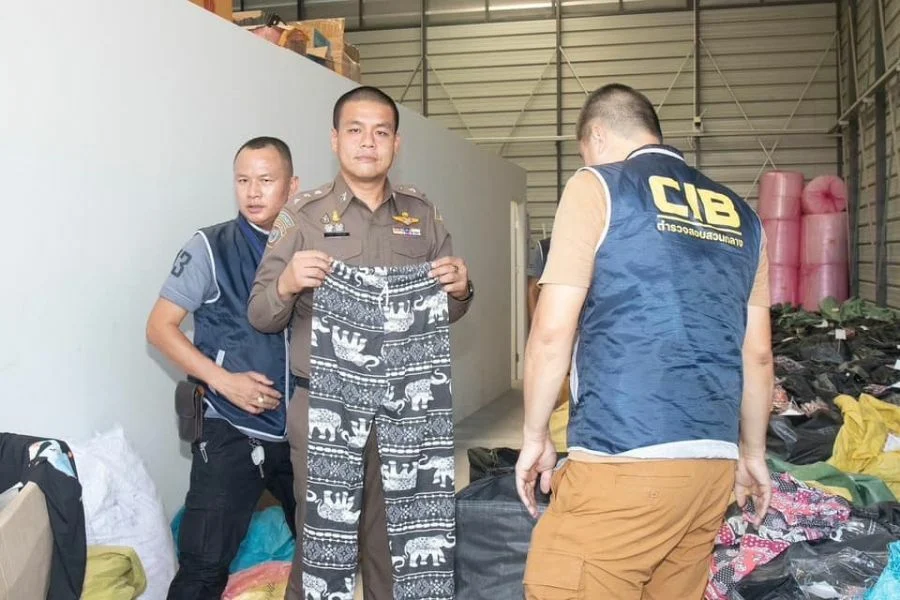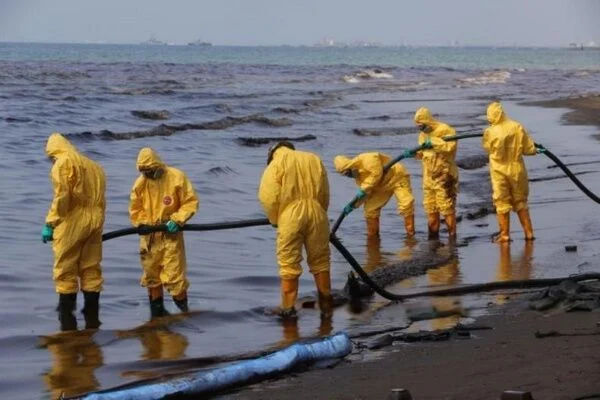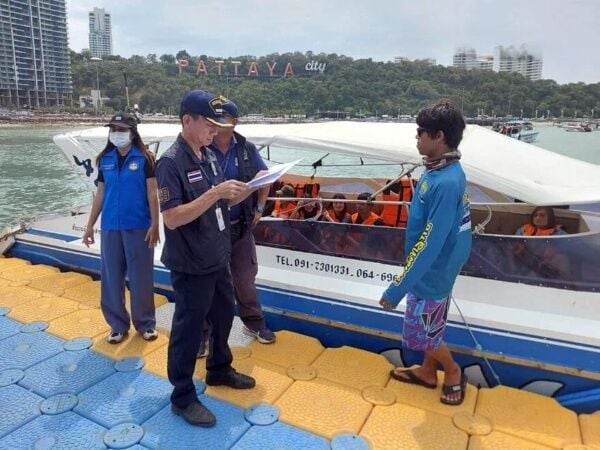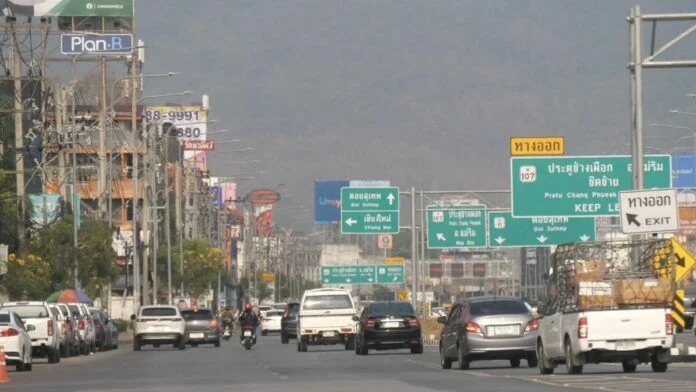Business
Illegal elephant pants from China seized at Bangkok warehouse

Officers from the Economic Crime Suppression Division conducted a raid on a warehouse situated in Bangkok’s Bang Khun Thian district, seizing a total of 30,000 elephant pants valued at over 6 million baht.
Following a tip-off regarding the tax evasion associated with the imported elephant pants from China, law enforcement officials carried out the operation on the Bangkok warehouse.
Officials emphasized that these elephant pants, intricately crafted by Thai artisans, enjoy popularity among foreign tourists visiting Thailand. Therefore, the unauthorized importation of these pants not only impacts the country’s revenue but also infringes upon the intellectual property rights of Thai citizens.
Elephant Pants Seizure and Legal Action against Importer
As reported by MGR Online, authorities confiscated more than 30,000 of these products from the warehouse, with a total value exceeding 6 million baht.
The importer of the products, whose identity was not disclosed, was issued a demand to settle the required taxes and provide evidence of payment. Failure to comply would result in legal actions being taken against them.
Elephant pants are regarded as one of Thailand’s soft power assets by the Thai government, aiming to enhance income for local vendors and the nation as a whole. However, local vendors have expressed dissatisfaction.
Recent reports from various Thai media outlets indicate that elephant pants imported from China outsell their Thai counterparts mainly due to their lower price. Consequently, the popularity of these pants does not translate into benefits for locals unless the Thai government implements measures to regulate the import and online sale of such products.

Nonetheless, elephant pants have inspired local designers in Thailand, leading to the creation of distinctive pants from various provinces across the country. Each province adds its unique touch to the pants’ patterns.
For instance, Nakhon Ratchasima province, also known as Korat, introduced its Korat cat pants, Prachuap Khiri Khan offers shell pants, Uthai Thani presents giant gourami pants, Samut Sakhon showcases fiddler crab pants, Phitsanulok features fighting cock pants, Nan provides whisper of love pants, and Lop Buri brings its playful monkey to the pant pattern.
Even Khao Kheow Open Zoo in Chon Buri joined the trend by launching capybara pants, which quickly sold out on their debut day.
The investigation into this matter is ongoing, and as of now, the Thai police have not provided any updates on the case.
“Success is not the absence of failure, but the courage to persevere despite it.”
The issue highlights broader concerns about the protection of intellectual property rights, fair trade practices, and the economic impact of counterfeit or unauthorized imports on local industries. It underscores the importance of implementing effective regulations and enforcement measures to safeguard both the interests of local artisans and the country’s economic well-being.
Additionally, the case brings attention to the evolving landscape of global trade and e-commerce, where products can easily cross borders and be distributed through various online platforms. Such challenges require not only local but also international cooperation and coordination to combat illegal trade activities effectively.
As the investigation progresses, there may be further developments regarding the legal actions taken against the importer and efforts to regulate the importation and sale of elephant pants to ensure a fair and sustainable marketplace for Thai artisans and vendors.
Business
Rayong fishing groups sue Star Petroleum over oil spill devastation

A group of 14 individuals hailing from Rayong, 2qmate release of 50,000 liters of crude oil into the Gulf of Thailand, besmirching the shores of Rayong.
The province’s Fisheries Office reports a toll of at least 2,600 fishermen affected by this calamity. Beyond the depletion of fish stocks in the area, the contamination rendered the remaining catch unsalvageable.
Subsequent to the disaster, local fishermen have found it unfeasible to sustain themselves. Their customary fishing yields from the Rayong coastline have notably dwindled. Many have resorted to extending their maritime excursions or ceasing fishing operations entirely.
“14 Rayong residents sue SPRC over 2022 oil spill, seeking compensation for livelihood losses.”
Lamom Boonyong, president of the Pak Nam Ban Rao fishing community, elucidated that the lawsuit extends beyond the culpability of the oil spill’s perpetrator. Five additional entities stand accused of contravening environmental safeguarding statutes.
Representing diverse factions comprising over 800 members collectively, the plaintiffs aim to establish a precedent with their litigation.
Should the verdict favor their cause, it could pave the way for compensation claims by remaining members, potentially entailing a financial burden of approximately 240 million baht for the implicated company, as per Bangkok Post.
Furthermore, these groups implore governmental intervention to facilitate the restoration of the local marine ecosystem. The Civil Court is slated to review the lawsuit on May 17th.
Business
Pattaya Port Authority prepares 700 speedboats for Songkran

As the Songkran Festival looms closer, Pattaya Port Authority prepares for an influx of travellers with an initiative to ensure safety and convenience. From April 11 to 17, they are set to facilitate seamless water travel between Koh Larn and Pattaya.
To cater to the needs of both locals and tourists, the authority has orchestrated a fleet comprising 60 passenger boats and 700 speedboats. Their ambitious setup aims to handle at least 20,000 travellers daily, totalling a staggering 140,000 to 150,000 over the seven-day festival.
Ekkrach Kantharo, Director of the Regional Marine Office, Pattaya Branch, highlighted the meticulous preparations.
“With Thailand offering visa-free entry for Chinese tourists this year, there’s been a noticeable surge in visitors to Pattaya, especially those flocking to the pristine shores of Koh Larn for relaxation.”
Passenger boats, each capable of accommodating 150 travellers, will shuttle between Pattaya and Koh Larn hourly, with three to four boats scheduled based on demand. Meanwhile, speedboats will offer flexibility for private trips.
The allure of Koh Larn’s scenic beaches and crystal-clear waters has made it a top pick among tourists, driving up the demand for water travel services. Daily port activity in Pattaya has skyrocketed to over 15,000 passengers, with foreigners making up 70%, including Chinese, Russians, and Indians, while Thai nationals account for the remaining 30%.
During the Songkran festival period, the Pattaya Port Authority will set up a dedicated water convenience and public relations centre at the port. Collaborating with Pattaya City, marine police, tourist police, and rescue workers, they aim to prioritise safety.
Strict regulations will be enforced, with boat operators required to conduct thorough checks on vessel conditions and safety equipment, including life jackets and lifebuoys, reported Pattaya Mail.
Regular inspections for drugs will also be carried out to maintain a secure environment for all travellers amid the festive celebrations.
In related news, the Tourism Authority of Thailand (TAT) is anticipating a robust tourism influx from North and South America this year, with a projection of at least 1.5 million tourists – a figure that mirrors the 2019 statistics. This surge is attributed to the confluence of the Songkran celebrations and the Easter holiday in April.
Business
Chiang Mai tourism expects rebound despite hotel booking slump

Chiang Mai, once bustling with tourists, is currently facing a downturn in hotel bookings as of Wednesday.
According to La-iad Bungsrithong, advisor to the Northern Thai Hotels Association, reservations are only at 30% capacity compared to the same period last April.
Despite this gloomy scenario, there is a glimmer of hope on the horizon. La-iad anticipates that occupancy rates will rebound to 70% during the upcoming Songkran Festival.
Scheduled from April 13 to 15 in Chiang Mai, the festival is expected to draw a large number of tourists. Some areas have even designated April 1 as the kickoff for water play festivities.
In related news, Chiang Mai tourism remains optimistic about a recovery despite the current slump in hotel bookings.
Traditionally favored as a cool winter retreat, Chiang Mai has faced additional challenges, notably air pollution. La-iad expressed optimism about a potential increase in tourist numbers by April, provided that the PM2.5 issues are effectively addressed.
“Chiang Mai is currently grappling with alarming levels of air pollution.”
However, this problem extends beyond Chiang Mai, affecting the entire northern region of Thailand. The air pollution crisis significantly impacted the tourism industry in March, causing hotel occupancy rates to drop to 50% from the expected 60%, according to La-iad.
She emphasized the necessity for a comprehensive plan from the Thai government to tackle air pollution. While this might not directly affect local businesses, the contaminated air, high in PM2.5, poses significant health risks.
“The PM2.5 issue requires a nationwide approach that entails concrete and comprehensive plans from the government.”
Additionally, La-iad proposed that Chiang Mai could benefit economically and in terms of tourism with the establishment of an entertainment complex. This could potentially replace the unregulated underground gambling dens. However, she stressed the importance of stringent legal measures and regulations to mitigate any potential societal issues stemming from the casinos.
“However, stringent legal measures and regulations must be carefully implemented to prevent any societal problems arising from the casinos.”
-

 News1 year ago
News1 year agoMICE industry must prioritise people management to sustain growth
-

 Entertainment2 years ago
Entertainment2 years agoDark history to exotic delights: Cambodia and Thailand tourist strategy
-

 Entertainment2 years ago
Entertainment2 years agoJohn Legend enjoys spring break in Phuket
-

 Entertainment2 years ago
Entertainment2 years agoSiam Paragon and Bangkok Pride proudly celebrates Pride Month from May 31 – June 4, 2024
-

 Entertainment2 years ago
Entertainment2 years agoPhuket’s Tourist Case court division resumes after four-year break
-

 Fashion2 years ago
Fashion2 years agoFed’s rate cut sends gold soaring past US$2,200 per ounce
-

 Fashion2 years ago
Fashion2 years agoGold prices in Thailand surge with ornaments at 37,350 baht
-

 Fashion2 years ago
Fashion2 years agoFashion brands linked to brutal slaughter of reptiles in Thailand (video)




